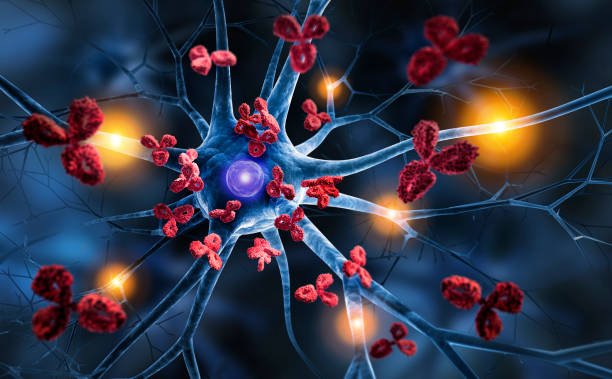Introduction
An interesting fact about multiple sclerosis is that women between the ages of 20 and 50 are more likely to get the disease. It is also much more common and seen in people of European descent.
No one really knows why this is happening. As a matter of fact, the first-line cause of MS is completely unknown, no one has been able to pinpoint what triggers it. It could be immune system destruction, it could be a failure of myelin-producing cells, it could be environmental and it could be genetic. Of course, it can also be a combination of things, and the cause will very likely vary from person to person.
What is known is that MS is a demyelinating disease, which means that the coverings insulating nerve cells in the brain and spinal cord are damaged.
This means that parts of the central nervous system can't communicate the way they should, leading to all sorts of problems. Victims can have double vision, be blind in one eye, have muscle weakness, problems with coordination, problems with sensitivity, and more. There is also fatigue, cognitive impairment, pain, incontinence, anxiety, depression, ataxia, and convulsions that may be present with the disease, and these can vary in severity and duration from patient to patient.
Although there is still no cure for multiple sclerosis, researchers work every day to unravel its mysteries. It is the most common immune-initiated and triggered disorder affecting the neural system and some doctors believe that physical therapy may help lessen the effects of some of the symptoms.
Of course, there are medications and regimens that people can follow to relieve symptoms when a flare-up occurs.
Although little is known about multiple sclerosis, what is known for a fact is that the logical life expectancy of a person diagnosed with multiple sclerosis is very high. MS is only 5-10 years shorter than average which is good news overall.
If you have been diagnosed with MS you are not alone and rest assured there are teams of people all over the world trying to find a cure. Until then, finding a doctor to work with and therapy that works for you in your fight against this disease is imperative.
Early Signs and Symptoms
Because MS affects the CNS, which controls all bodily functions, symptoms can affect any part of the body.
The most peculiar symptoms and well of MS are:
Muscle weakness: People can develop weak muscles due to nerve damage from not being used or stimulated.
Numbness and Tingling: A tingling is one of the first symptoms of MS and can affect the face, body, arms and legs.
Lhermitte's sign : A person may have a feeling like feeling an electric shock when moving their throat, known as Lhermitte's sign.
Bladder problems:
a person may have difficulty emptying their bladder or need to urinate frequently or suddenly, which is known as urge incontinence. Impairment of bladder control is an early sign of MS.
Intestinal problems: Constipation can cause stool retention, which can lead to bowel incontinence.
Fatigue: This can affect a person's ability to function at work or at home and is one of the most common symptoms of MS.
Dizziness and dizziness: This are common problems, along with balance and coordination issues.
Sexual Dysfunction: Both men and women can lose interest in sex.
Spasticity and muscle cramps: This is an early sign of MS.Neuro-spinal and brain can cause painful muscle spasms, including in the legs.
Tremor: Some people with MS may experience involuntary tremor movements.
Vision problems: Some people may experience double or blurred vision or partial or total vision loss. in most cases it affects one eye at a time.
Inflammation of the optic nerve can cause pain when the eye moves. Vision distortion is an early sign of MS.
Gait and mobility changes: MS can change the way people walk due to muscle weakness and balance problems, dizziness and fatigue.
Emotional swings and depression: Demyelination and damage to nerve fibers in the brain can trigger emotional swings.
Learning and memory problems: These can make it difficult to focus, plan, learn, prioritize, and multitask.
Pain: Pain is a common symptom of MS. Neuropathic pain is directly related to MS, while spasticity or muscle stiffness can cause localized pain.
Less common symptoms include:
Headache
Hearing loss
Itching
Breathing or difficulty breathing
Seizures
Speech disorders
Trouble swallowing
There is also an increased risk of urinary tract infections, Reduced activity and loss of mobility.
These can affect a person's work and social life.
In the later stages, people may experience changes in perception and thinking and a sensitivity to heat.
MS affects people differently. For some, it starts with a subtle sensation and their symptoms don't progress for months or years. Sometimes symptoms worsen rapidly over weeks or months.
Some people experience only mild symptoms, while others experience significant changes that lead to disability. However, most people experience periods when symptoms get worse and then get better.
Causes and risk factors
Scientists don't really know what causes MS, but risk factorsTrusted Sources include:
Age: Most people are diagnosed between the ages of 20 and 40.
Gender: Women are twice as likely to be affected by most forms of MS unlike men.
Genetic factors: Susceptibility can be passed in the genes, but scientists believe an environmental trigger is also required for the development of MS, even in people with specific ones genetic traits.
Smoking: smoking is a risk factor to many disease out there likewise MS.They are also prone to more brain damage and shrinkage than non-smokers.
Infections: Exposure to viruses such as Epstein-Barr virus (EBV) or mononucleosis can Trusted Source increase a person's risk of developing MS, but research has not shown a clear link. Other viruses like herpesvirus type 6 (HHV6) and mycoplasma pneumonia also play a role.
Vitamin D deficiency: MS is more common in people who are less exposed to sunlight, which the body needs to make vitamin D. Some experts believe that low levels of vitamin D can impair immune system function.
Vitamin B12 Deficiency: The body uses vitamin B12 when it forms myelin. A deficiency in this vitamin can trusted source increase your risk of neurological diseases such as MS.
Back Theories have included exposure to canine distemper, physical trauma, or aspartame, an artificial sweetener, but there's no evidence to support them. There is likely no single trigger for MS, there is also no cure for MS, but treatment is available that can slow the progression of the disease, reduce the number and severity of flare-ups, and relieve symptoms.
Some people also use complementary and alternative therapies, but research does not always confirm how helpful these are.
Treatment options include:
Medications to treat slowing progression
Several disease-modifying therapies (DMTs)trusted source have Food and Drug Administration (FDA) approval to treat relapsing forms of MS. These work by altering how the immune system works.
Some of these may be given by a doctor orally, as an injection, or as an IV.
The following DMTs currently have FDA approval:
Injectable drugs
Avonex (interferon beta-1a)
Betaseron
glatiramer acetate
Extavia
Glatiramer Acetate Injection (Glatiramer Acetate: generic equivalent of Copaxone in 20 mg and 40 mg doses)
Glatopa (Glatiramer Acetate: generic equivalent of Copaxone in 20 mg - and 40 mg doses)
Kesimpta (ofatumumab)
Plegridy (peginterferon beta-1a)
Rebif (interferon
beta-1a)
Oral medication
Aubagio (teriflunomide)
Bafirtam (monomethyl fumarate)
dimethyl fumarate
Gilenya
Mavenclad
Mayzent
Tecfi dera
Vumerity (diroximel fumarate)
Zeposia (ozanimod)
Infused drugs
Lemtrada (alemtuzumab)
Novantrone (mitoxantrone)
Ocrevus (ocrelizumab)
Tysabri (natalizumab)
Current guidelines recommend that a person starts taking these drugs when they are in the early stages of MS because there is a high possibility that they can slow the progression of MS, especially if the person takes them when the symptoms are not yet serious.
Side effects of immunosuppressive medication include an increased risk of infection. Some medications can also damage the liver.
If you experiences any side effects or if their symptoms worsen, please you should see a doctor.
Relieve Symptoms During a Flare-Up
Other medications are helpful if a person is suffering from a flare-up or Worsening of symptoms during an outbreak. You don't need these drugs all the time.
These drugs include corticosteroids, which reduce inflammation and suppress the immune system. They can counter acute flare-ups of symptoms in certain types of MS.
Examples include Solu-Medrol and Deltasone. Steroids can cause side effects if a person uses them too often and may not provide any long-term benefit.
THANKS FOR READING SAYONARA 🖐
BY @sam9999
References/Resources
Reference 1
Reference 2
Reference 3
Reference 4
Reference 5
Reference 6
Reference 7



Congratulations @sam9999! You have completed the following achievement on the Hive blockchain and have been rewarded with new badge(s):
Your next target is to reach 300 comments.
You can view your badges on your board and compare yourself to others in the Ranking
If you no longer want to receive notifications, reply to this comment with the word
STOPTo support your work, I also upvoted your post!
Check out the last post from @hivebuzz:
Support the HiveBuzz project. Vote for our proposal!
Thanks for your contribution to the STEMsocial community. Feel free to join us on discord to get to know the rest of us!
Please consider delegating to the @stemsocial account (85% of the curation rewards are returned).
You may also include @stemsocial as a beneficiary of the rewards of this post to get a stronger support.